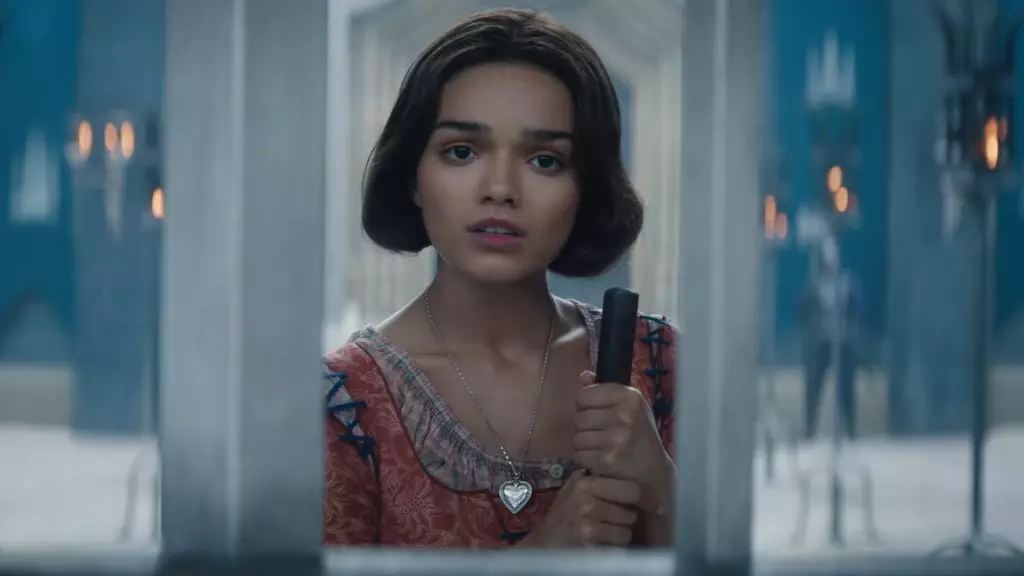In an era where cinematic adaptations of beloved animated films have become a staple of Hollywood, Disney’s latest attempt at revamping “Snow White” has resulted in an alarming projected loss of $115 million. This astonishing figure isn’t just a number; it represents a failure in recognizing the nuances of audience engagement and modern storytelling. While the final box office take of $225 million is significant, it pales in comparison to the ambitious $410 million production expenses that encompass production costs, marketing, and distribution endeavors. In a world where brand reputation is king, Disney’s strategy to revive classics seems to be misaligned with its audience’s evolving preferences.
The underwhelming performance of “Snow White” is not simply a byproduct of an uninspired rehashing of a classic. The film’s release strategy coincided with a pervasive cultural climate where social media interactions can amplify or dampen public perception and anticipation for a movie. Rachel Zegler’s controversial statements, combined with the film’s prolonged production timeline plagued by strikes and production woes, painted a perfect storm that left the film struggling in its opening weekends. While some critics and audiences viewed her casting—an ethnic shift from the original—a progressive step, backlash from trolls and the ensuing controversy only complicated the film’s reception.
America’s Film-Making Dilemma
In the realm of movie-making, the age-old adage “any publicity is good publicity” has been decisively proven wrong by this film’s fate. Disney has been down this road before. The release of “Solo: A Star Wars Story” suffered when the directorial helm was swapped mid-production, severely affecting both the film’s marketing narrative and its ultimate box office success. Unfortunately, the same this case of “Snow White” highlights that mishandled publicity can be devastating, leading to an array of economic consequences. For a company that has historically relied on its gripping storytelling and magical twists, the missed opportunity here is almost tragic.
This is not purely a logistics problem. It’s about understanding and engaging audiences in a meaningful way. The traditional model of film production, revolving around large marketing expenditures and red-carpet events, appears anachronistic. Instead, embracing an influencer culture, as seen in the broader landscape of modern entertainment, could have invigorated the film’s promotional strategy. Early screening for social media influencers and engaging the ever-important Gen-Z demographic could have generated positive buzz that might have resulted in a healthier bottom line.
The Crumbling Magic of Disney’s Brand
One must also question the broader implications of Disney’s brand strategy. The company has posited itself as a pioneer of creativity and inclusivity, but it often seems unable to navigate the delicate balance of honoring legacy while embracing necessary evolution. With the shift from traditional hand-drawn animations to live-action adaptations, Disney has sacrificed the core values that once propelled its storytelling to greatness. “Snow White,” despite its high-caliber talent—including a gifted director and award-winning songwriters—failed to evoke the nostalgia that once resonated with audiences.
The current business model, which relies heavily on nostalgia, may have begun to backfire when putting a decades-old narrative into a modern framework. While Disney’s push to revamp its classic characters can be appreciated, there is a fine line between reimagining and damaging the emotional core of these beloved stories. Emma Watson’s “Belle” in “Beauty and the Beast” successfully navigated cultural sensitivities by adding depth to the character, illustrating how inclusivity should be approached through an empowering lens rather than merely a token gesture.
As Disney wades through this tumultuous shift in entertainment, it must reassess its strategies not just in production, but in how it engages with fans who feel robbed of the narratives they grew up loving. While there’s an obvious market for modern adaptations, the lesson of “Snow White” should serve as a stark reminder that without respect for storytelling and genuine engagement with audiences, even the most magical brands can become tarnished.

